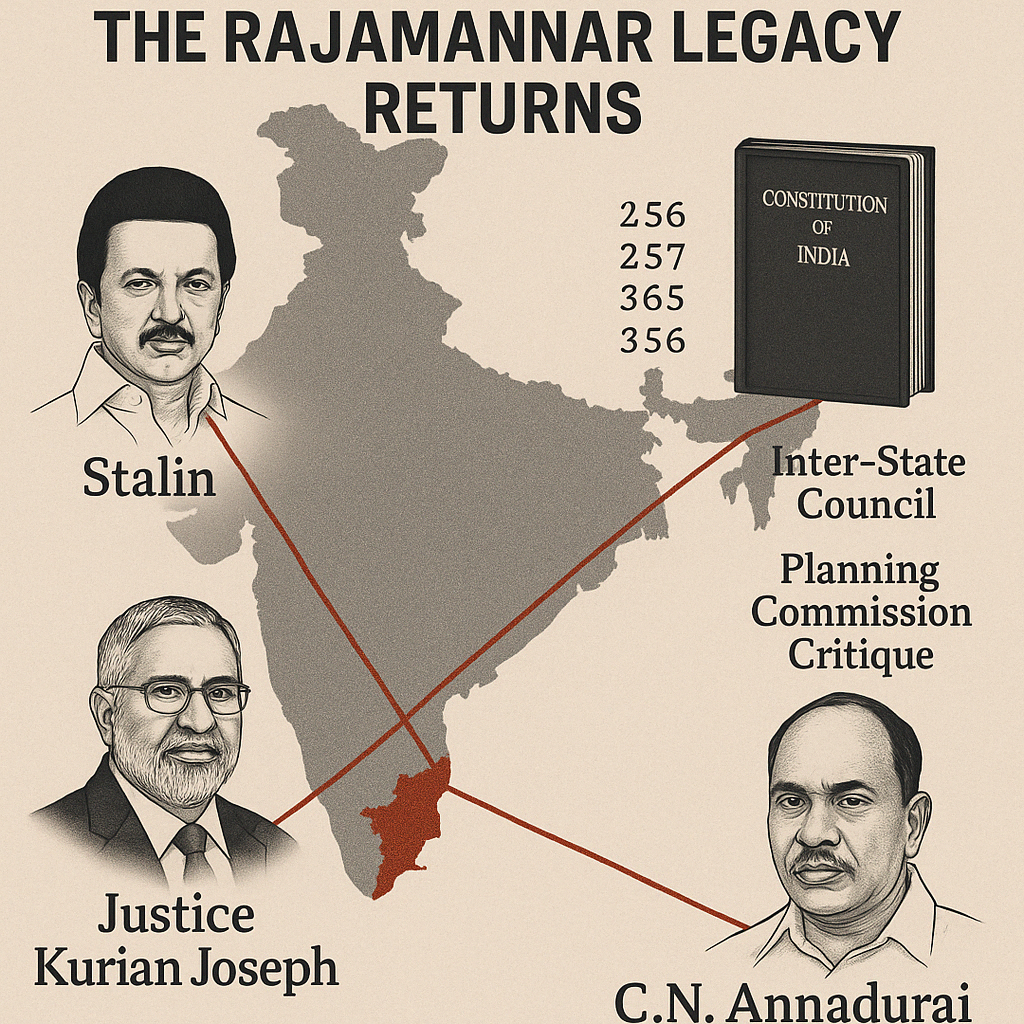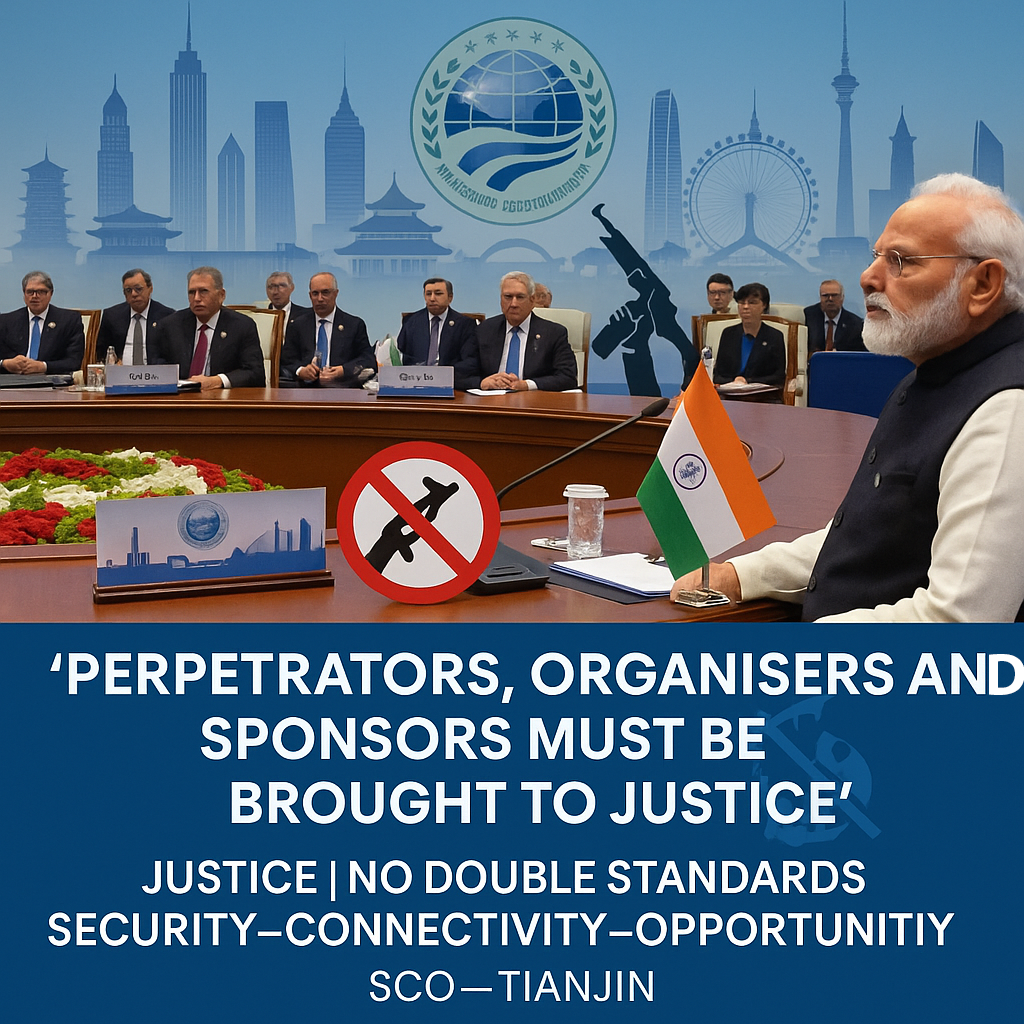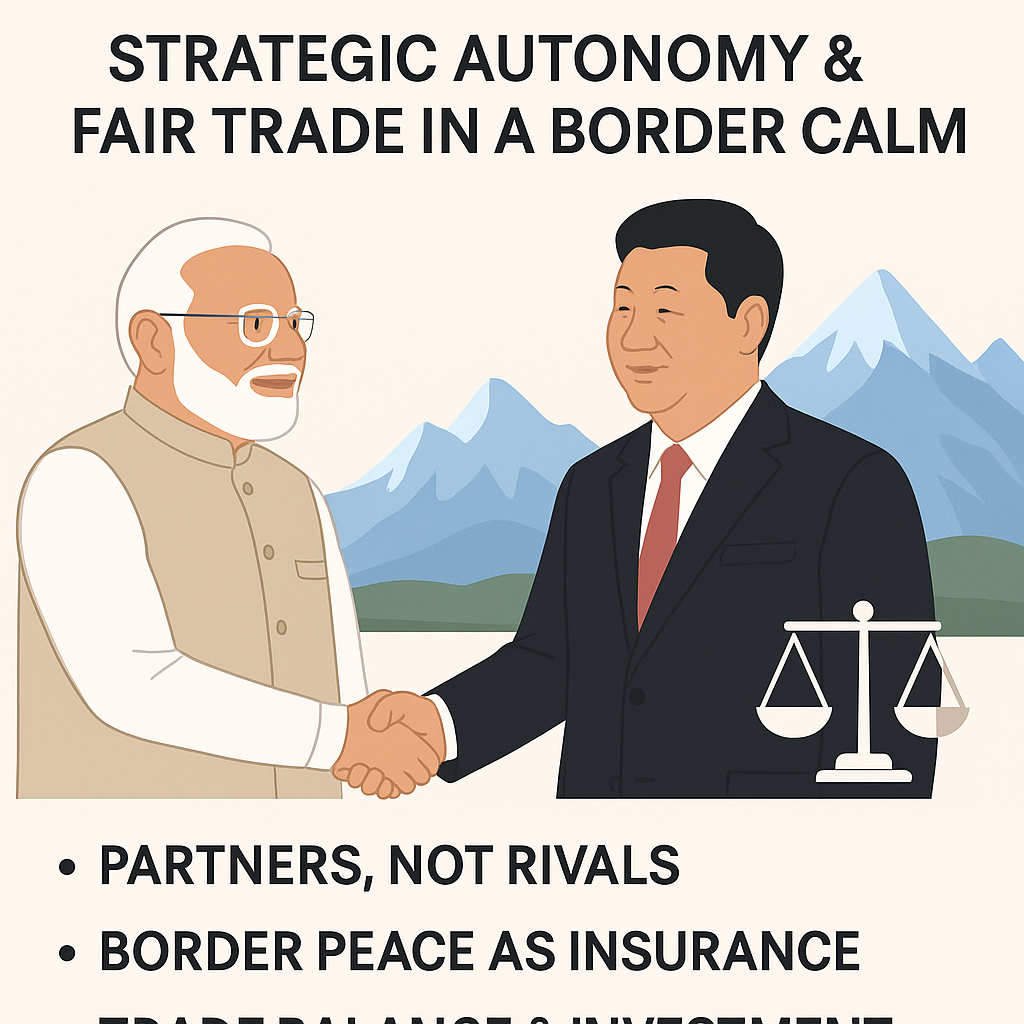
005- Apr 17, 2025
“The Federal Thread: Tamil Nadu’s Quiet Revolution for State Autonomy”

🧭 Thematic Focus
Category: Indian Polity | Federalism | Constitutional Review
📌 Key Highlights
- Recent Development:
- Tamil Nadu CM M. K. Stalin forms a high-level committee under Justice Kurian Joseph to review Centre–State dynamics.
- Reflects concerns over diminishing state rights within India’s quasi-federal structure.
- Historical Echo:
- Inspired by the 1969 Rajamannar Committee led by C. N. Annadurai’s government — a landmark critique of central overreach.
- Rajamannar Committee’s Core Findings:
- Articles 256, 257, 365 empower the Centre to direct or control states.
- Recommended repealing Article 356 (President’s Rule) to protect democratic governance in states.
- Called for a permanent Inter-State Council to encourage dialogue over dominance.
- Criticised bodies like the Planning Commission for distorting constitutional balance — creating dependency over fiscal autonomy.
- Philosophy of Federalism:
- Committee warned: Centralisation weakens unity.
- True unity requires cooperation, not control.
- Referenced Annadurai’s vision of a Centre limited to defence, external affairs, and communication.
- Present-Day Relevance:
- Stalin’s move aligns with disputes on NEET, GST compensation, and language policy with the central government.
- Calls to restore the federal compact envisioned in the Constitution.
- Uncertain Road Ahead:
- Will the Centre accept the committee’s findings?
- Past federal reform proposals — including from Sarkaria and Punchhi Commissions — were largely ignored.
🧠 Concept Explainer
Why Federalism is More Than a Power Tussle
India’s Constitution promises “cooperative federalism,” but its practice often resembles command federalism. When one thread pulls too tightly, the fabric tears. Tamil Nadu’s effort is not rebellion — it’s a reminder that true unity respects difference and decentralisation.
📜 GS Paper Mapping
- GS Paper II: Indian Constitution – Federal Structure, Centre–State Relations
- GS Paper II: Governance – Inter-Governmental Institutions
- Essay Paper: Unity in Diversity – The Federal Foundation of India
💭 A Thought Spark — by IAS Monk
“A federation is not built on command — it is woven with trust, dialogue, and the dignity of shared purpose. The Centre holds, only when the States stand.”


















